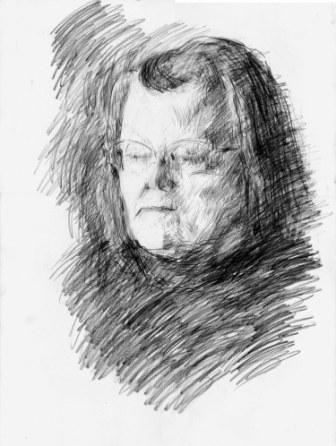The second lost book I found is The Story Book of Houses, written and illustrated by Maud and Miska Petersham, published in 1933. I have another one in the series, Food, and Bill has one about transportation. I googled the Petershams, and discovered that their lithographs had illustrated some 60 books and they had even won the Caldecott award. On the inside cover my youngest son has put his stamp, and I on the title page I have written my name in what looks like my grade two handwriting.
I can remember closely examining each detail of each pictureof the book and imaging what it would be like to live in such a house: a cave, a Chinese junk, a tree house. When I am writing, I have to make a deliberate effort to describe nature, but I describe the interior of a house and food too effortlessly. One editor said that she was hungry after working on my novel. In my first nine years we lived in nine different houses, and then, oh happy day, we bought the house that my parents lived in until they died. The purchase and refurbishing of this house was the major project of their lives.
Poor Mad Peter over in The Pilgrim is re-reading Elizabeth Goudge’s Scent of Water. That inspired me to re-read it too. It is about a woman who in middle age goes to live in a country house she has inherited. The story is about the house and its chattels, its gardens, and its neighbors. I think that Goudge invented a new plot, the story of the creation of a home, or at least she advanced it. My favorite of her novels is the Damerosehay trilogy, with the same plot. She comes so close to sentimentality that she sometimes veers across the line, and if she were alive, she would probably agree to have her editor expunge one of her favorite words, “ejaculated”, as a synonym for “said.” She does use the more conventional plot lines: courtship and the resurrection of a benighted character.
For many people, the making of a home is their major creation. Nothing tears at my heart like the words “homeless” and “refugee.”
Thursday, December 07, 2006
Subscribe to:
Post Comments (Atom)

3 comments:
The Poetics of Space, Bachelard explores the human capacity to inhabit imagined places--or perhaps it would be more accurate to say, inhabit real places imagines. Nests, garrets, etc. Me, I can remember as a boy of seven inhabiting the pilot house of the little sail boat in E.B. White's Stuart Little.
The Poetics of Space is one of my all time favorite books. In fact, I have two copies, so that when I lend it, I won't have to worry about its coming back home. I must look again at Stuart Little.
I found the rest of Elizabeth Goudge's books all but unreadable, alas, because of the theological stance she proposes. But this one more than makes up for the rest. You're right, Nancy R., and I hadn't thought of it before, but Goudge created an original plot.
Post a Comment